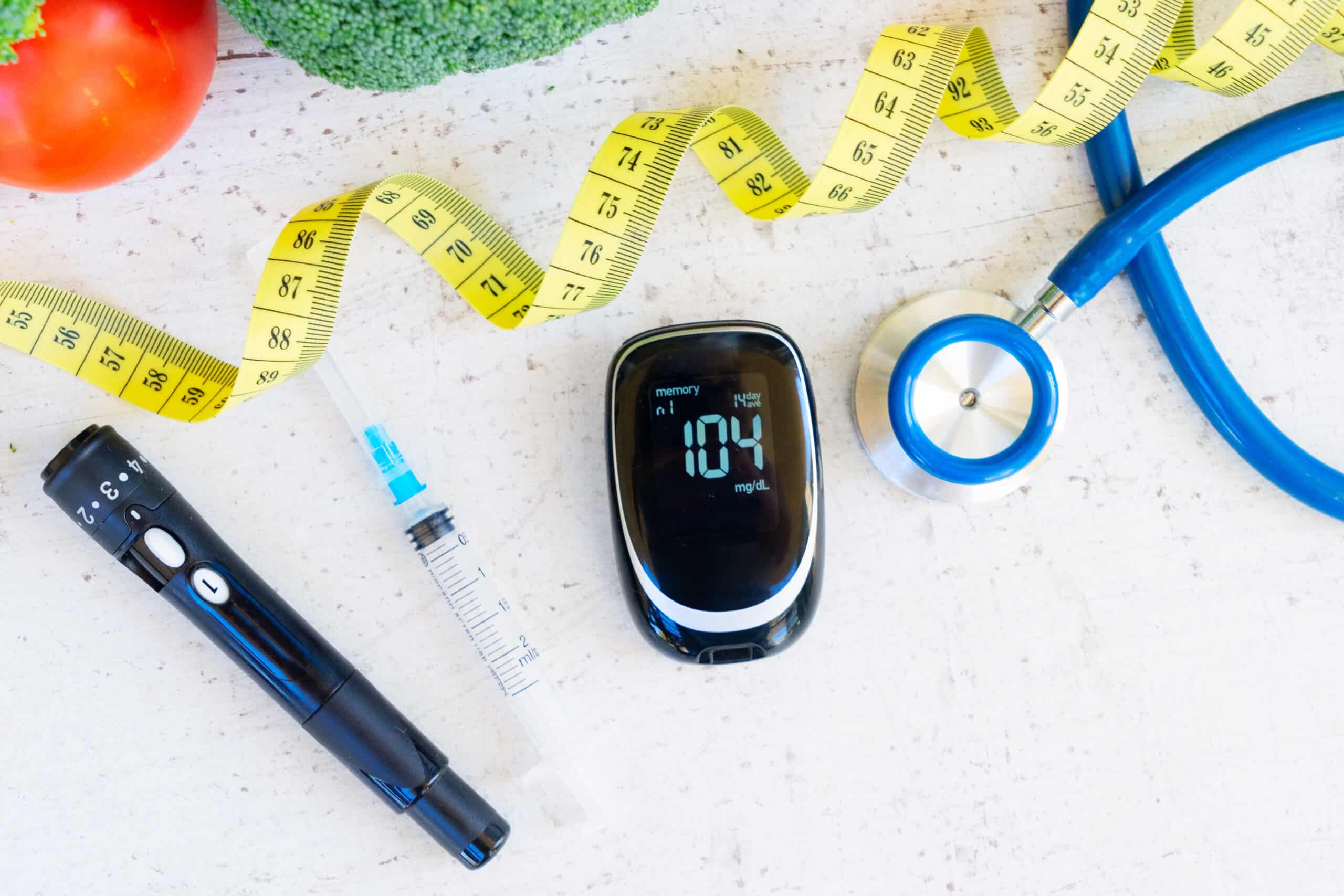
Can Weight Loss Help With Diabetes?


Weight loss is often recommended as a step in diabetes management. While losing tens of kilos may seem challenging to you, the benefits are worth the effort.
Losing weight should ideally come up with losing body fat – it is by achieving the latter that you improve your diabetes and overall health.
In this article, we will explore how weight loss impacts diabetes, what lifestyle changes you should make to see improvements, and some treatments you can consider.
Obesity is highly associated with the onset of type 2 diabetes. Being obese makes your body less receptive to insulin, which helps regulate blood sugar levels. This condition is called insulin resistance.
Excess fat, particularly around your abdomen, contributes to insulin resistance. This fat produces free fatty acids that disrupt insulin’s natural activity.
If you have chronic inflammation, which is commonly associated with obesity, your insulin response can also be impaired. With reduced insulin sensitivity, you increase your chances of acquiring type 2 diabetes.
Weight loss can improve your insulin sensitivity. Here’s how it happens:
Weight loss improves chronic inflammation in several ways.
With better insulin sensitivity and blood sugar control from weight loss, you may be able to lessen your reliance on diabetes medications. Under your doctor’s supervision, your doses may be lowered or even discontinued for certain drugs.
Cardiovascular disease is a common diabetes complication and more so for obese individuals. However, losing weight can eliminate risk factors such as high blood pressure and cholesterol levels.
When managing obesity and diabetes, making positive lifestyle changes is vital.
A healthy diet is crucial in weight loss and keeping your blood sugar levels under control. When dropping weight, don’t focus on eliminating calories mindlessly – make smart food choices that resolve around:
Including exercise in your weight loss or diabetes management plan may be daunting, especially if you are living a sedentary life. However, the pros can outweigh the challenges of exercising.
In a systematic review, the average risk reduction for diabetes was 42% when comparing the most physically active participants to the least active participants. Below, we explain why regular exercise is so essential to fighting diabetes.
Exercise helps your body utilise energy more efficiently by increasing insulin sensitivity. When you exercise, your muscles require glucose uptake, and this increased demand for glucose reduces the need for large amounts of insulin to be released.
Regularly doing aerobic exercises (such as brisk walking, jogging, or cycling) and resistance training (such as weightlifting) effectively improve insulin sensitivity. These types of activities can promote muscle strength and increase glucose uptake.
Regular exercise contributes to your energy expenditure. It helps you burn more calories and promote fat loss while preserving muscle mass, helping you reach your weight loss goals and improving your health.
Exercise strengthens your heart, improves circulation, and lowers blood pressure and cholesterol levels. It is a way to reduce the risk of cardiovascular complications associated with diabetes.
Managing stress is crucial for individuals with diabetes, as stress hormones can raise blood sugar levels. Engaging in physical activity helps combat stress and promotes overall well-being.
The recommended frequency of exercise is 150 minutes of moderate intensity aerobic exercise per week. That is 30 minutes per day, 5 days a week, excluding warm up and cool down. If you are starting out from a previously sedentary lifestyle, do consult your doctor on the appropriate intensity levels that you should begin with.
In addition to dietary changes and physical activity, adopting healthier habits can further support your weight loss and diabetes management efforts:
Strive for quality sleep of 7-9 hours per night. Poor sleep can affect hunger hormones and insulin sensitivity.
Find effective ways to manage stress, such as practising deep breathing exercises, yoga, or engaging in hobbies and activities you enjoy.
Drink plenty of water throughout the day and limit sugary beverages. Hydration is essential to help manage your cravings and overall health.
If you smoke, consider quitting, as smoking can worsen diabetes complications. If you consume alcohol, do so in moderation and be mindful of its impact on blood sugar levels.
Apart from the above, there are tools to help improve this process safely, including;
This can help you lose weight while also improving blood sugar control, reducing your dependency on diabetes medications, and decreasing your risk of diabetes-related complications.
To qualify for this, your doctor will check for a few things:
When it comes to managing diabetes, food plays a bigger role than most people realise. Every meal you eat has the power to either stabilise your blood sugar or send it on a rollercoaster ride. For many, excess weight can make blood sugar control more challenging — but the good news is, even modest weight loss can significantly improve your body’s ability to regulate glucose levels.
That’s where a nutritionist comes in. Rather than giving you a generic “eat less sugar” plan, a qualified nutritionist works with you to create a personalised nutrition plan tailored to your lifestyle, preferences, and health goals.
A health coach works with you one-on-one to bridge the gap between knowing what to do and actually doing it. Instead of giving you a rigid set of rules, they focus on building habits that fit into your real life.
When it comes to diabetes, even small lifestyle changes can lead to better blood sugar control, reduced dependence on medication, and lower risk of complications.
SL Aesthetic Clinic offers weight loss programs in Singapore. We are dedicated to supporting individuals who want to regain their ideal body weight and health.
Our team of experienced doctors provide:
We work with our sister brand, Prologue The Lifestyle Medical Clinic, to ensure a holistic weight loss plan that manages your weight and diabetes safely and effectively. With us, you get access to body composition devices, a team of nutritionists, doctors and health coaches.
To find out more about our approach, consult us today.
Like what you read? Share them!